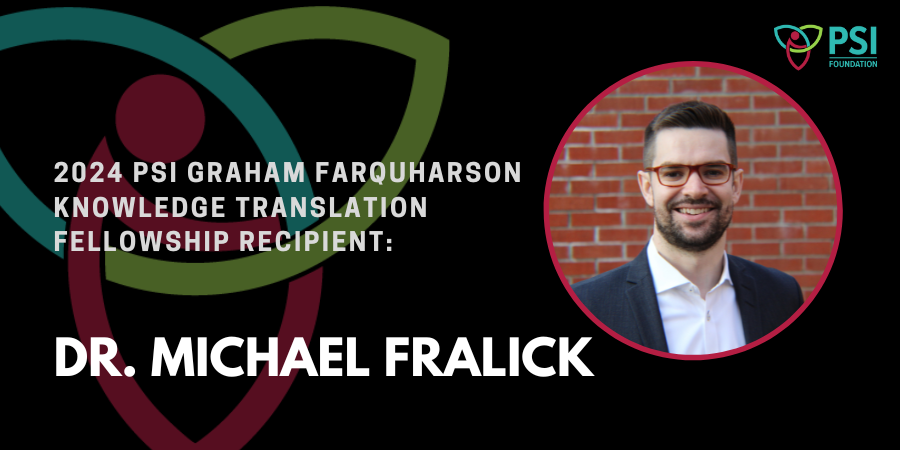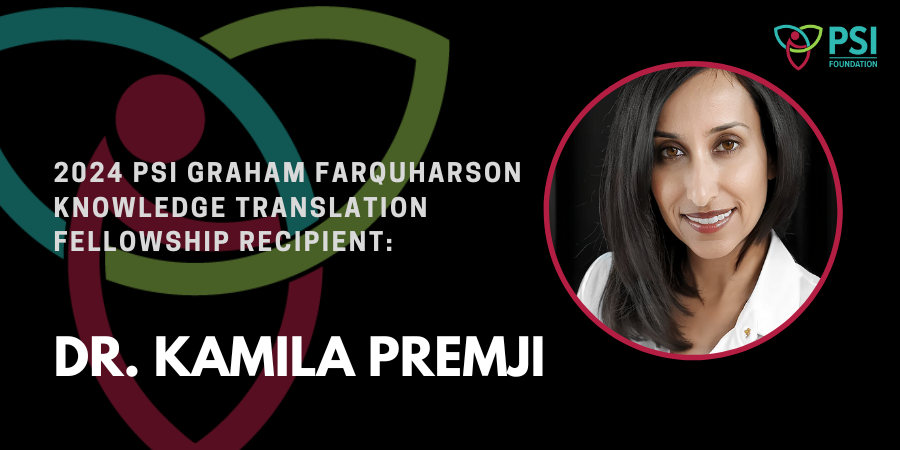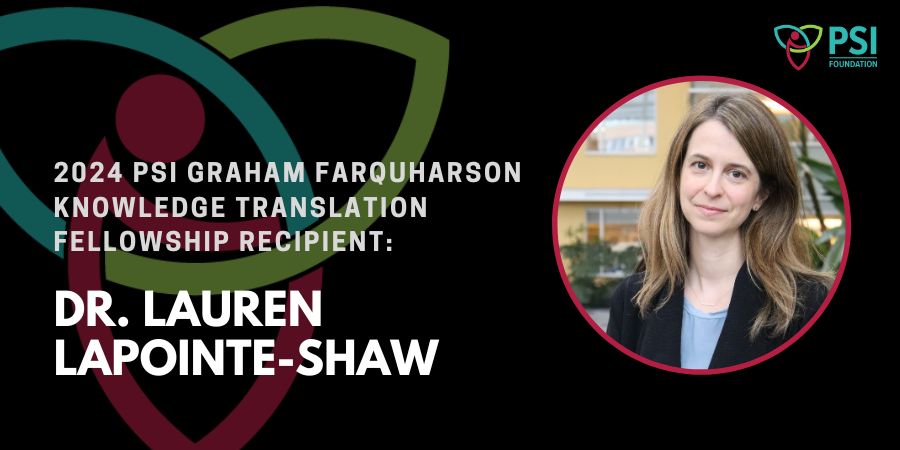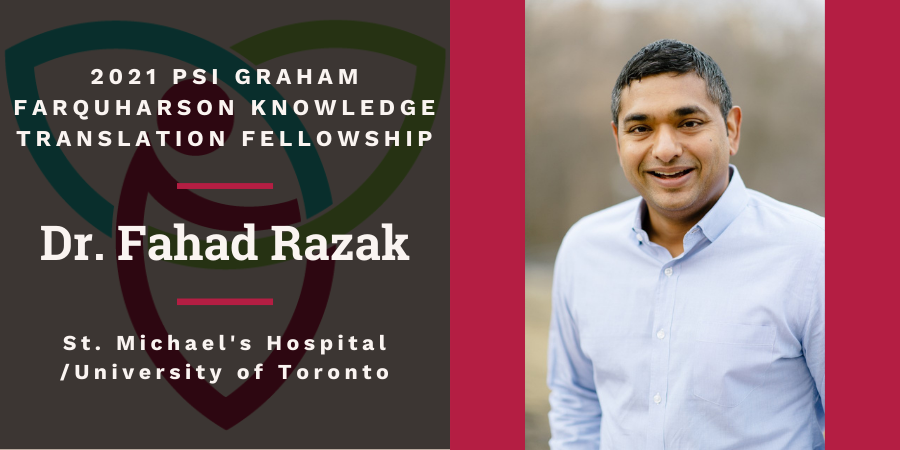“As a general internist who sees many patients with chronic diseases like diabetes, heart failure, obesity, and chronic kidney disease, the existence of medications like SGLT2 inhibitors and GLP1 analogues is a revelation; the slow uptake, however, is challenging. I strongly believe that this dedicated knowledge translation program—informed by stakeholder perspectives, policy process insights, behavioural science, and diverse stakeholder support—can have a meaningful impact on the prescribing of these medications and, consequently, a significant impact on the lives of the almost 35% of Ontarians living with the abovementioned conditions. I am honoured to be a PSI Graham Farquharson KT Fellow, and I look forward to pursuing this work.” – Dr. Michael Fralick
PSI Foundation is pleased to announce Dr. Michael Fralick as the recipient of the 2024 PSI Graham Farquharson Knowledge Translation Fellowship.
About Dr. Michael Fralick
Dr. Michael Fralick is a Clinician Scientist at Sinai Health and an Assistant Professor at the University of Toronto’s Temerty Faculty of Medicine. He also works clinically at the Sault Area Hospital in Sault Ste. Marie, Ontario. To date, he has published over 160 papers, with over 80 as first or senior author. His research focuses on integrating pharmacoepidemiology with machine learning to understand the safety and effectiveness of medications for adults living with diabetes and cardiovascular disease.
About the PSI Graham Farquharson Knowledge Translation Fellowship
Knowledge translation research aims at transitioning research discoveries to the real world to improve health outcomes. The PSI Graham Farquharson Knowledge Translation Fellowship – valued at $300,000 for over two or three years – helps protect a promising new clinician investigator’s research time, allowing the Fellow to undertake high-impact translational research in Ontario.
Dr. Fralick highlights the significance of salary support awards for early career physician researchers.
“Salary support for physician researchers at the early career level is invaluable. Protected time is incredibly important to break through the competing demands and endless pursuit of funding and allow physician researchers to focus on achieving impactful, timely results. What’s more, having this dedicated time early in one’s career creates opportunities for generating research outputs, establishing collaborations, and pursuing professional development, all of which lay the foundation for a successful research program moving forward.”
Fellowship Funds to be Used to Improve Uptake of Novel Diabetes Medications
SGLT2 inhibitors (SGLT2s) and GLP1 analogues (GLP1s) are prescription medications for patients with type 2 diabetes proven to reduce the risk of heart failure, kidney failure, stroke, heart attack, and death. Even in patients without diabetes, these medications reduce the risk of heart failure and end-stage kidney disease, and in patients with obesity, GLP1s can reduce body weight by up to 15%. However, these medications are not being prescribed to patients as often as one might expect, considering their impressive benefits. The aim of this project is to improve the uptake of SGLT2s and GLP1s for adults with and without diabetes in Ontario. Slow adoption is common for new treatments, and a dedicated effort to understand why prescribing rates are low is the first step to making a change. Dr. Fralick and his team will speak with doctors and other healthcare providers in both urban and rural areas of Ontario to understand their perceptions of these medications, and what barriers might exist to prescribing them. Based on these insights, they will pursue various approaches to improve prescribing, including reports that show doctors how their prescribing rates compare to their colleagues, freely accessible prescribing tools for doctors, educational materials, dedicated presentations, and a twice-monthly newsletter.




